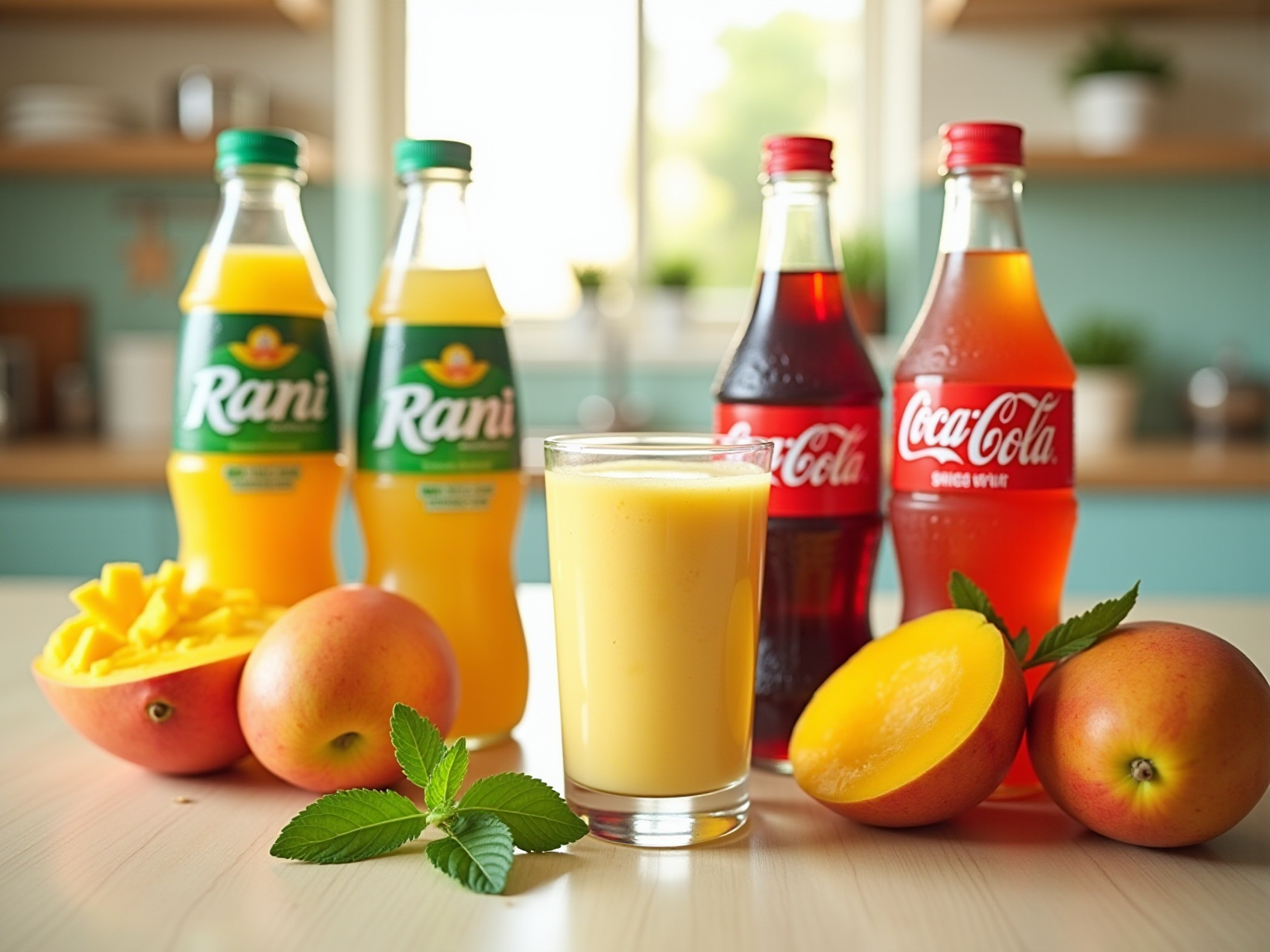General
Master Behavioral Science in Marketing for the Food and Beverage Sector in Saudi Arabia
Overview
This article delves into the effective application of behavioral science principles within marketing strategies tailored for the food and beverage sector in Saudi Arabia. It highlights essential techniques such as:
- Understanding cognitive biases
- Leveraging social proof
- Personalizing marketing efforts
These strategies are crucial for significantly enhancing consumer engagement and boosting sales, as they align marketing practices with the psychological factors that drive purchasing decisions.
Introduction
In the competitive landscape of the food and beverage industry, mastering the intricate interplay between consumer behavior and marketing strategies is crucial for achieving success. Behavioral science provides a wealth of insights into the psychological and emotional factors that drive purchasing decisions, empowering marketers to design campaigns that resonate profoundly with their target audiences.
By leveraging cognitive biases, social proof, and emotional triggers, brands can implement innovative techniques that not only capture attention but also enhance conversion rates. As the market evolves, particularly in regions such as Saudi Arabia and the UAE, the integration of cultural sensitivity and health consciousness into marketing strategies becomes essential.
This article delves into the principles and techniques that can equip food and beverage marketers to effectively engage consumers and navigate the unique challenges of this dynamic sector.
Understand Behavioral Science Principles
Behavioral science delves into the psychological, social, and emotional factors that shape purchasing decisions. By grasping its fundamental principles, marketers in Saudi Arabia can harness behavioral science in their marketing strategies for the food and beverage sector, thereby crafting more effective campaigns.
- Cognitive Biases: It is essential to recognize biases such as anchoring, loss aversion, and the decoy effect. For example, when consumers encounter a premium product adjacent to a pricier option, they may perceive the former as more valuable, thus influencing their purchasing decisions.
- Social Proof: Consumers frequently depend on the experiences of others when making choices. Integrating customer testimonials or user-generated content into marketing initiatives can significantly bolster credibility. Remarkably, positive reviews can lead to a 31% increase in consumer spending, highlighting the influential role of social proof in swaying potential buyers. A case in point is Slack, which effectively employs logos of partner companies on its landing page to foster customer trust, illustrating how social proof can enhance conversion rates.
- Emotional Triggers: Emotions play a crucial role in decision-making processes. Campaigns that successfully evoke positive feelings can drive higher engagement and conversion rates. Brands that forge emotional connections with their audience often experience enhanced customer loyalty and sales. According to Yotpo, showcasing user-generated content on product pages can elevate conversion rates by up to 166% and reduce cart abandonment rates by as much as 2.5%, underscoring the significance of emotional triggers and social proof in marketing.
- Nudging: The presentation of options can subtly influence buyer behavior. For instance, strategically placing healthier food options at eye level in stores encourages shoppers to make better dietary choices, demonstrating the effectiveness of nudging in promoting healthier habits.
- Contemporary Marketing Approaches: As dietary habits shift, marketing methods must evolve accordingly. By employing innovative content development and media strategies, companies can effectively engage with changing audience preferences. For instance, utilizing social media platforms to share captivating images and videos of healthier food options can capture attention and stimulate interest. By categorizing content by type, companies can tailor their messaging to align with current trends, ensuring relevance in a competitive landscape.
By leveraging these principles, marketers can gain profound insights into consumer behavior, enhancing their application of behavioral science in marketing for the food and beverage sector in Saudi Arabia and the UAE. This enables them to refine their strategies for maximum impact.
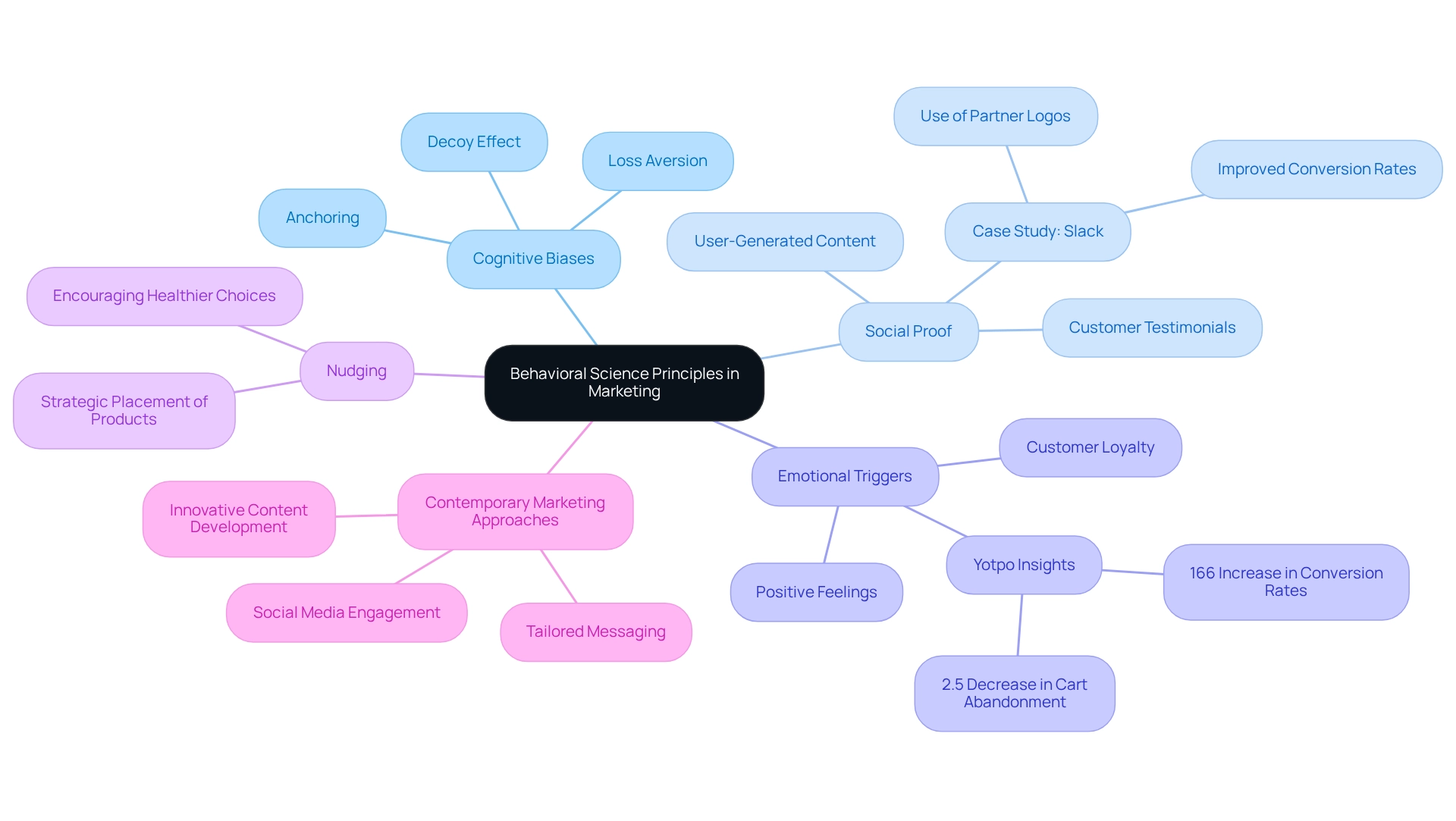
Identify Key Behavioral Techniques for Marketing
Several behavioral techniques can significantly enhance marketing effectiveness in the food and beverage sector:
- Scarcity and Urgency: Creating a sense of scarcity through limited-time offers can prompt quicker purchasing decisions. For instance, a food brand might promote a seasonal flavor available only for a short period, leveraging the psychological trigger of urgency to drive sales. Significantly, 41% of shoppers are inclined to acquire a product with only 1 to 4 reviews, suggesting that favorable reviews can further heighten the urgency to buy.
- Personalization: Tailoring promotional messages based on consumer data can dramatically increase engagement. By analyzing customer purchase history, brands can recommend products that align with individual preferences, leading to a more personalized shopping experience. Research indicates that smart personalization engines can boost profits by up to 15%, highlighting the financial benefits of this approach. Moreover, 63% of millennials, 58% of Gen Xers, and 46% of Baby Boomers are open to sharing personal information for tailored offers or discounts, underscoring the significance of personalization in promotional strategies.
- Framing: The presentation of information can significantly influence consumer perceptions. For instance, labeling a product as ‘90% fat-free’ instead of ‘10% fat’ can foster a more positive perception of the product, illustrating the influence of framing in promotional communications.
- Loyalty Programs: Implementing loyalty programs encourages repeat purchases by rewarding customers for their loyalty, effectively leveraging the principle of reciprocity. This strategy not only encourages customer retention but also improves loyalty for the company over time.
- Behavioral Segmentation: Dividing individuals according to their actions, such as purchase frequency and brand loyalty, enables more focused promotional efforts. This approach enhances the probability of conversion by delivering tailored messages that resonate with specific market segments.
Integrating these methods can lead to more efficient promotional approaches, particularly by applying behavioral science in marketing for the food and beverage sector in Saudi Arabia. Furthermore, findings from the automotive sector indicate that 86% of individuals are more inclined to interact with platforms providing tailored experiences, implying that comparable approaches might be advantageous in the food industry too.
As Neil Patel notes, “Exit-intent popups have doubled my email opt-in rate. When done right, you can see an instant 12% lift on driving sales.” This emphasizes the efficiency of tailored promotional approaches in boosting customer engagement and sales.
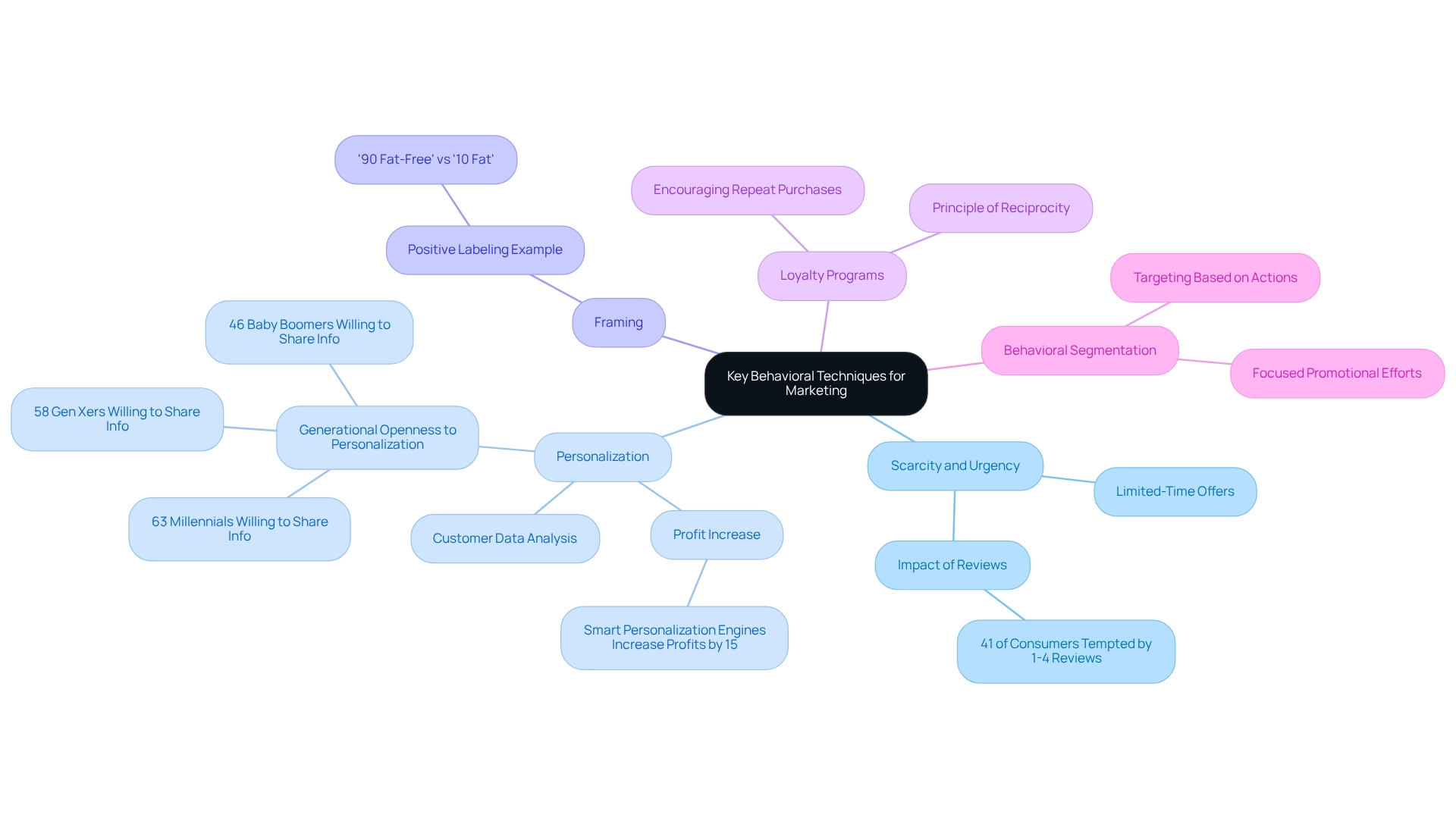
Apply Techniques to the Saudi Food and Beverage Market
To effectively apply behavioral techniques in the Saudi food and beverage market, consider the following approaches:
- Cultural Sensitivity: A deep understanding of local customs and preferences is crucial. For instance, during Ramadan, promotional campaigns should focus on family gatherings and iftar meals, emphasizing themes of community and sharing, which resonate strongly with consumers. As highlighted by Safya E. Esmaeel, upcoming research should utilize a broad array of methodologies to examine current marketing approaches, underscoring the significance of cultural sensitivity. WonderEight’s Digital Audit service can assist companies in evaluating their current strategies to ensure they are culturally relevant.
- Health Consciousness: As health and wellness trends gain momentum, it is essential to emphasize the health benefits of products. Clear labeling and informative content can educate consumers about nutritional values, catering to the increasing demand for healthier options. This trend is further supported by the SAR 3 billion allocated by the Saudi government to boost local agriculture and food manufacturing under Vision 2030, reflecting a commitment to enhancing the food sector. WonderEight’s SEO Consultancy can help companies enhance their online presence to effectively showcase these health benefits.
- Digital Engagement: Utilize popular social media platforms in Saudi Arabia, such as Instagram and Snapchat, to connect with younger audiences. Craft engaging content that aligns with local trends and lifestyles, capitalizing on the 20-minute increase in daily internet usage observed in 2022. With YouTube and WhatsApp having the highest penetration rates across the Kingdom, leveraging these platforms can significantly enhance outreach. WonderEight’s extensive social media approach can assist companies in developing impactful campaigns that resonate with their target audience.
- Local Influencers: Partnering with local influencers can enhance authenticity in product promotion. Their endorsements can significantly impact trust and purchasing choices, making them valuable allies in marketing strategies. WonderEight can help identify and collaborate with the right influencers to amplify messages effectively.
- E-commerce Optimization: With the rise of e-commerce, it is vital to ensure that online shopping experiences are seamless. Utilize behavioral insights to tailor product suggestions and simplify the buying process, addressing the increasing number of individuals participating in online shopping. The application of blockchain technology in supply chains increases transparency and safety in food sourcing, which can strengthen public trust and enhance company reputation in the market. WonderEight’s proficiency in e-commerce development can aid this optimization, ensuring brands fulfill client expectations in the digital realm.
By incorporating these methods, brands can successfully navigate the distinctive environment of the Saudi food and beverage market through behavioral science in marketing, fostering stronger relationships with customers and enhancing brand loyalty.
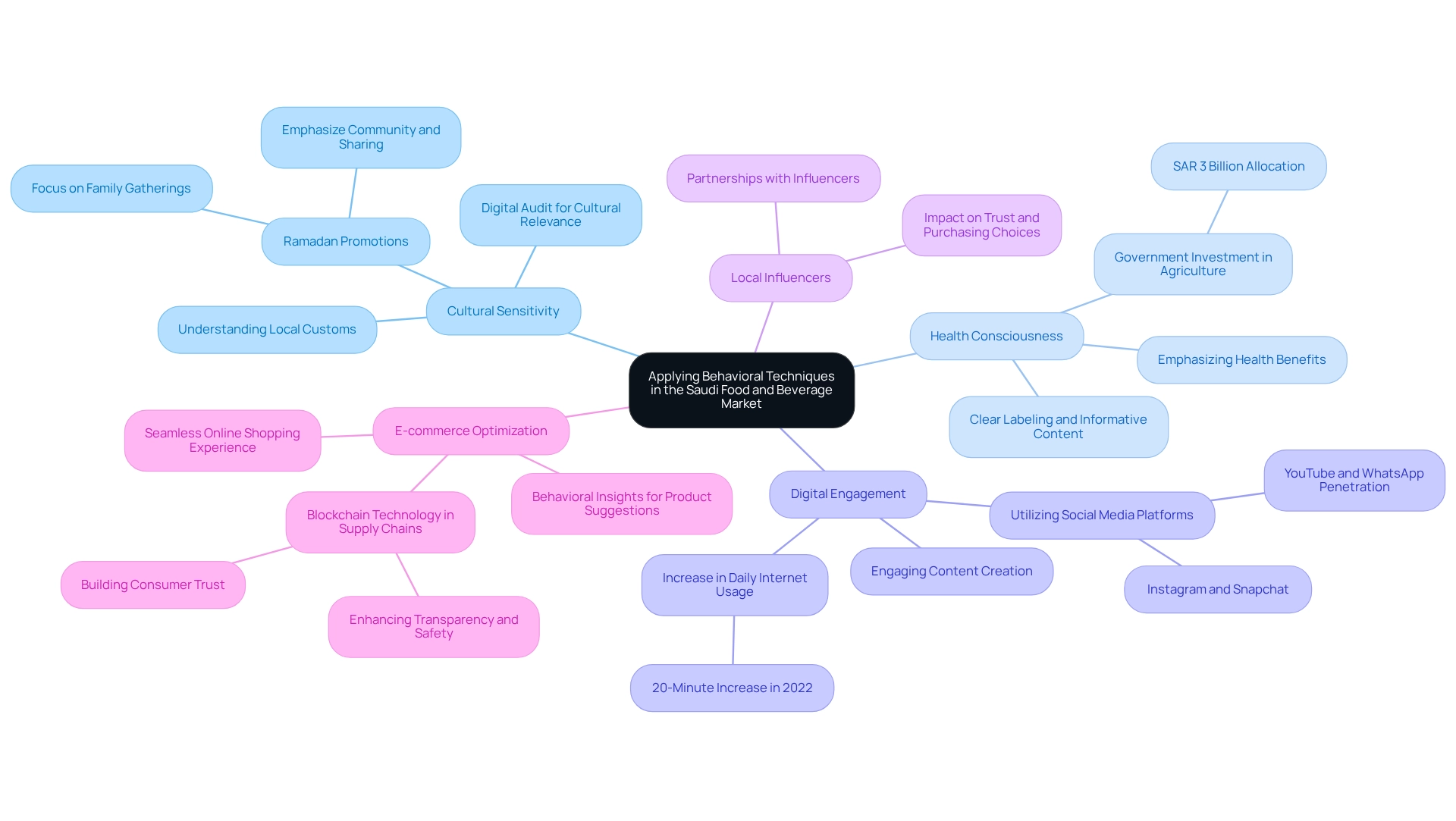
Utilize Tools and Resources for Implementation
To effectively implement behavioral marketing techniques, it is imperative to leverage the following tools and resources:
- Analytics Platforms: Harness tools such as Google Analytics and social media insights to meticulously monitor user behavior and engagement metrics. This data is not merely helpful; it is essential for guiding future promotional strategies, as it enables a profound understanding of audience preferences and trends.
- A/B Testing Tools: Platforms like Optimizely and VWO empower marketers to experiment with various promotional messages and designs, allowing for the identification of options that resonate most with consumers. Remarkably, A/B testing can lead to substantial enhancements in promotional effectiveness, with fluctuations in website traffic potentially reaching 500% based solely on headline selections. To achieve statistical significance in A/B testing, a sample size of 25,000 visitors is recommended, underscoring the challenges faced in obtaining reliable results from these tests.
- Customer Relationship Management (CRM) Systems: Implementing CRM systems such as HubSpot or Salesforce is crucial for streamlining customer interactions and personalizing marketing efforts. By analyzing user data, these systems facilitate the customization of communications to satisfy individual preferences, thereby improving engagement and loyalty.
- Email Marketing Software: Tools like Mailchimp and Constant Contact enable the creation of targeted email campaigns that leverage behavioral insights. These platforms allow for precise segmentation and personalization, driving higher engagement rates among recipients.
- Market Research Reports: Regular consultation of market research reports specific to the Saudi food and beverage sector is vital to remain informed about consumer trends and preferences. Resources such as NielsenIQ and Euromonitor provide invaluable insights that can inform strategic choices and initiatives.
As Miro Kazakoff, a senior lecturer at MIT Sloan, aptly states, “In a world of more data, the companies with more data-literate people are the ones that are going to win.” This statement underscores the importance of incorporating data-driven approaches into your promotional activities. Furthermore, with approximately 21-40% of companies classified as ‘Aspiring’, there exists a significant opportunity for brands to enhance their promotional strategies through effective behavioral advertising techniques.
By integrating these tools into your marketing strategy, you can harness the power of behavioral science to elevate consumer engagement and drive impactful business results.
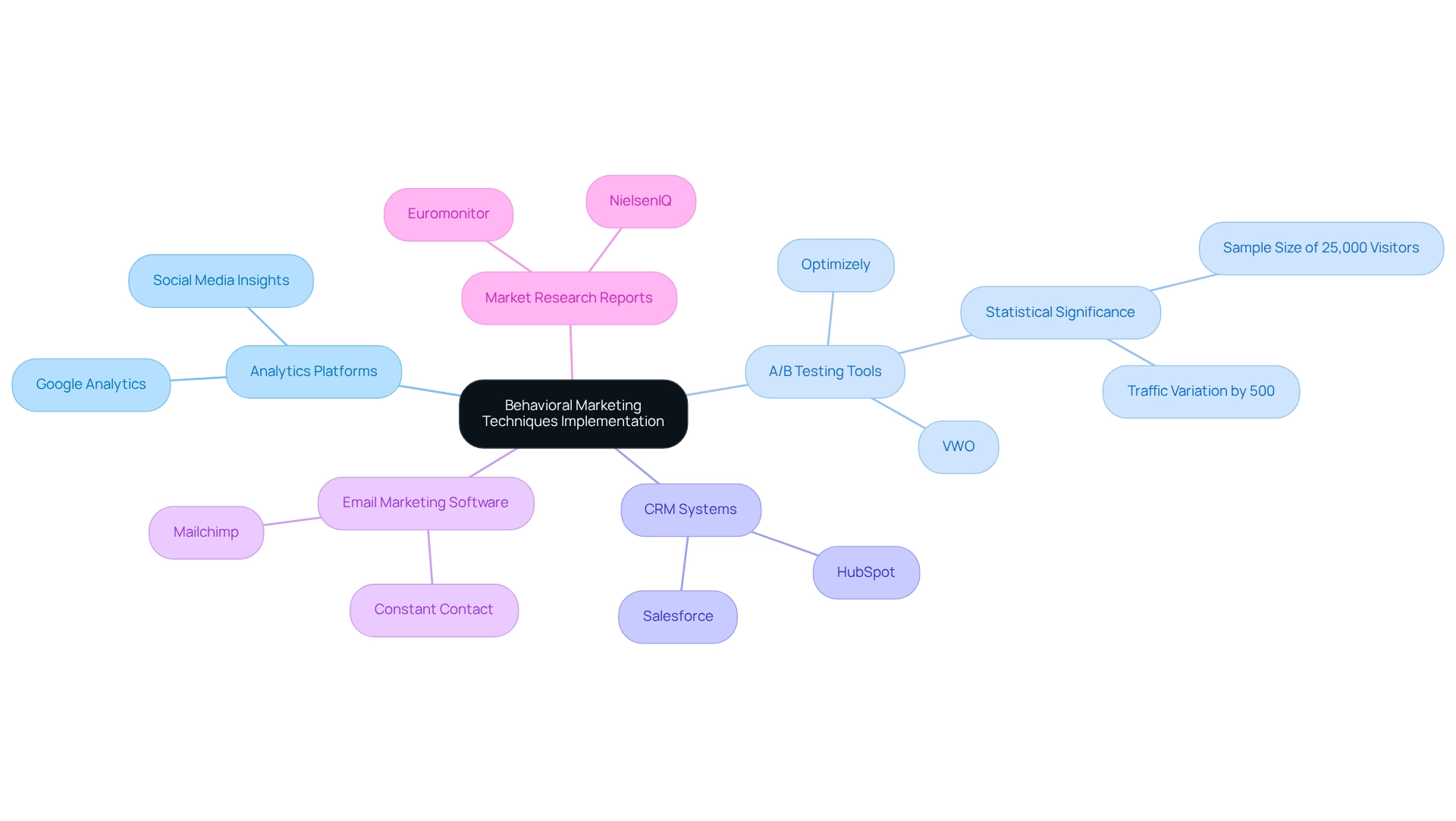
Conclusion
Understanding consumer behavior is paramount for success in the food and beverage industry, particularly in dynamic markets like Saudi Arabia and the UAE. By leveraging principles from behavioral science—such as cognitive biases, social proof, and emotional triggers—marketers can craft campaigns that resonate deeply with their target audiences. This strategic application of insights not only enhances engagement but also drives conversion rates, ultimately leading to increased sales and brand loyalty.
Moreover, implementing key behavioral techniques, including personalization, scarcity, and loyalty programs, significantly elevates marketing effectiveness. Tailoring strategies to reflect cultural sensitivities and health consciousness is essential in these markets, as consumers increasingly seek products that align with their values and lifestyles. Utilizing local influencers and optimizing digital engagement through popular platforms further strengthens connections with consumers, fostering trust and authenticity.
Finally, integrating tools such as analytics platforms and CRM systems into marketing strategies empowers brands to make data-driven decisions, enhancing their ability to meet consumer expectations. By embracing these behavioral marketing techniques and resources, food and beverage brands can successfully navigate the competitive landscape, ensuring they not only capture attention but also cultivate lasting relationships with consumers. In this ever-evolving market, the integration of behavioral insights into marketing strategies is not just beneficial; it is essential for long-term success.
Frequently Asked Questions
What is the significance of behavioral science in marketing for the food and beverage sector in Saudi Arabia?
Behavioral science helps marketers understand the psychological, social, and emotional factors influencing purchasing decisions, allowing them to create more effective marketing strategies.
What are cognitive biases, and how do they affect consumer purchasing decisions?
Cognitive biases, such as anchoring, loss aversion, and the decoy effect, can influence how consumers perceive value. For instance, seeing a premium product next to a more expensive option may make the premium product seem more valuable.
How does social proof impact consumer behavior?
Social proof relies on the experiences of others to guide consumer choices. Incorporating customer testimonials or user-generated content can enhance credibility and significantly increase consumer spending, as demonstrated by a 31% increase linked to positive reviews.
What role do emotional triggers play in marketing?
Emotions are crucial in decision-making. Campaigns that evoke positive feelings can lead to higher engagement and conversion rates. Brands that connect emotionally with their audience often see improved customer loyalty and sales.
What is nudging, and how can it be utilized in marketing?
Nudging involves presenting options in a way that subtly influences buyer behavior. For example, placing healthier food options at eye level in stores can encourage better dietary choices among shoppers.
How should marketing approaches adapt to changing dietary habits?
Marketing methods should evolve by employing innovative content and media strategies to engage with shifting audience preferences. Sharing appealing images and videos of healthier food options on social media can capture attention and stimulate interest.
How can marketers apply behavioral science principles effectively in their strategies?
By understanding and leveraging principles like cognitive biases, social proof, emotional triggers, and nudging, marketers can gain insights into consumer behavior and refine their strategies for greater impact in the food and beverage sector.


